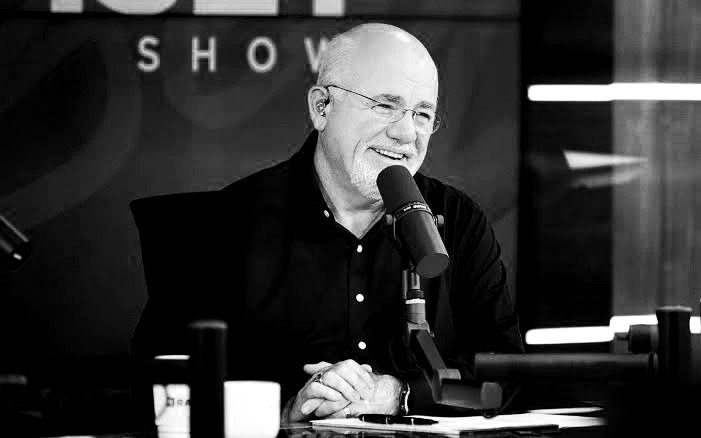Ever wonder what millionaires do with their money that most people simply overlook? It’s not always about earning more. In fact, many self-made millionaires started out with average incomes. What makes the real difference is how they manage, grow, and protect their wealth. This article breaks down the mindset, habits, and strategies that millionaires adopt and how you can apply them to your own financial journey, regardless of where you’re starting.
I personally believe financial freedom isn’t reserved for the elite. It’s a result of informed decisions, consistent habits, and long-term thinking. And this is Why the Millionaire Mindset Matters. So let’s explore the exact steps millionaires take to build wealth that lasts, and how you can start thinking (and acting) like the wealthy, even before you hit your first million.
Millionaires Prioritize Financial Education
One of the most important things millionaires do differently is commit to financial literacy. They understand that money management is a skill, not just a talent. They read books, attend seminars, and surround themselves with experts. Instead of seeing financial topics as boring or overwhelming, millionaires embrace learning as a long-term advantage. Whether it’s understanding how compound interest works, how taxes affect investments, or how to read a balance sheet, they make time to sharpen their financial intelligence.
Good news! You don’t need a finance degree to understand your money. Start by reading one personal finance book a month or subscribing to trusted newsletters (like MoneyBreez) that break down financial topics in a simple and actionable way.
Millionaires Focus on Building Assets, Not Just Income
Here’s where the true wealth-building begins. While most people focus on increasing their income through salary hikes, side gigs, or even multiple jobs, millionaires are more concerned with acquiring assets that generate passive income over time.
Assets include things like real estate, stocks, businesses, intellectual property, and more. These are things that don’t just hold value—they grow in value and provide ongoing cash flow. For millionaires, money is a means to acquire value-producing assets, rather than just a resource to spend.
Let’s take real estate as a common example. While some people view homeownership as the ultimate financial goal, millionaires often look at real estate through an investment lens. They buy rental properties, flip undervalued homes, or hold commercial spaces. These ventures are not only cash-producing but also appreciate over time.
Similarly, they invest in the stock market strategically—not with the hope of “getting rich quick,” but by building a diversified portfolio and letting compound interest do its magic. According to a Fidelity study, long-term investors who stay the course tend to outperform those who attempt to time the market.
Many also launch or invest in businesses. Not all millionaires start the next big tech company, but many build small to medium-sized enterprises that solve real-world problems and scale over time. Whether it’s a digital product, a niche e-commerce brand, or a consulting firm, business ownership remains one of the most consistent paths to wealth.
💡 Shift your mindset from working for money to making your money work for you. Ask yourself: What assets can I start building or investing in today that will pay off in 3, 5, or 10 years?
In the next section, we’ll break down how millionaires budget and manage their spending in ways that support long-term wealth—without feeling deprived.
Smart Spending and Strategic Budgeting
Contrary to popular belief, most millionaires don’t live extravagantly. In fact, many are quite frugal. According to The Millionaire Next Door by Thomas J. Stanley and William D. Danko, a large number of millionaires live below their means and prioritize value over luxury.
So, what sets their spending habits apart?
They Spend Intentionally
Millionaires align their spending with their long-term goals. Rather than impulse buying or keeping up with trends, they ask: Will this purchase help me grow, save time, or create value? This mindful approach helps them avoid lifestyle inflation and maintain financial control.
Budgets with Flexibility and Focus
They don’t necessarily follow rigid, penny-counting budgets. Instead, they use high-level frameworks like the 50/30/20 rule (50% needs, 30% wants, 20% savings/investments) or reverse budgeting, where saving and investing come first, and the rest follows.
A common trait is automation: automating savings, investments, and recurring bills. This not only builds discipline but removes the emotional friction of managing finances manually.
Delayed Gratification Is the Norm
While many people aim for immediate rewards, millionaires often delay gratification. They may drive older vehicles, cook at home, or skip luxury brands. Not because they can’t afford better, but because they know those expenses don’t contribute to their financial goals. Warren Buffett still lives in the Omaha house he bought in 1958. While that may be extreme for most, it reflects a mindset: prioritizing long-term wealth over short-term appearance.
💡 Smart spending isn’t about restriction. It’s about being intentional and aligning expenses with your bigger financial picture.
Mastering Leverage to Build Exponential Wealth
If there’s one concept millionaires master that most people overlook, it’s leverage. Leverage isn’t just about borrowing money; it’s about using resources to amplify results with less direct effort. Millionaires understand this principle deeply and apply it strategically across different areas of life.
Leveraging Time
Everyone has the same 24 hours a day. But millionaires treat their time differently. They delegate tasks that don’t align with their zone of genius or highest value—whether it’s hiring a virtual assistant, outsourcing accounting, or automating day-to-day business operations.
By freeing up their time, they focus on what drives income and long-term impact. This could mean strategizing investments, building a business, or networking with key decision-makers.
Leveraging Money
Millionaires use their money to make more money. This might involve investing in real estate using mortgages, buying stocks and reinvesting dividends, or launching income-generating businesses.
They understand “good debt” (money borrowed to acquire appreciating or income-producing assets) and they use it wisely. Rather than letting their cash sit idle, they put it to work. The goal is to create systems where money generates passive or semi-passive income streams.
Leveraging Networks
There’s a reason successful people value strong networks. Whether it’s finding a mentor, collaborating with peers, or accessing insider opportunities, relationships can unlock doors money alone can’t. Millionaires actively cultivate relationships by adding value. They attend masterminds, join investment groups, and are often the first to support others. In return, they gain knowledge, support, partnerships, and opportunities that accelerate growth.
Remember: Leverage is not about cutting corners. It’s about multiplying results through smart systems, strategic investments, and aligned relationships.
Now, we’ll talk about how millionaires maintain their wealth through lifelong learning and mindset mastery in the next section
Lifelong Learning and Mindset Mastery
One of the most overlooked habits of millionaires isn’t found in their bank accounts; it’s found in their minds. Financial success isn’t just about numbers; it’s about mindset. The wealthy think differently about money, opportunity, and failure.
A Growth Mindset Fuels Wealth
Millionaires believe they can always learn, grow, and improve. They don’t see failure as an end but as a lesson. While most people might avoid risk or give up after a setback, successful individuals view challenges as stepping stones to better strategies and smarter decisions.
This growth mindset keeps them moving forward even when the odds seem unfavorable. It’s what pushes them to read regularly, invest in self-development, and seek out mentorship.
Investing in Learning
Millionaires don’t stop learning after school. In fact, they often say the real education begins after formal education ends. They consume books, take online courses, attend workshops, and pay for coaching in areas that align with their goals.
According to findings from Thomas C. Corley, who spent five years studying the daily habits of wealthy individuals, a significant number of self-made millionaires make reading a core part of their daily routine. In his book Rich Habits: The Daily Success Habits of Wealthy Individuals, Corley revealed that 88% of self-made millionaires read at least 30 minutes a day, with a strong focus on personal development, education, and self-improvement. Rather than reading for entertainment, they consume content that helps them grow professionally and financially, such as biographies, history, and books on leadership and business strategy. This habit is one of the key differentiators Corley identified between the wealthy and those struggling financially.
Self-Awareness and Emotional Intelligence
High net-worth individuals are typically very self-aware. They understand their strengths, weaknesses, and emotional triggers. This awareness helps them make rational decisions especially in high-stakes situations. They invest in their emotional intelligence to lead teams effectively, build trust, and manage conflict productively. This ability to stay calm under pressure is part of what makes them resilient in uncertain markets or volatile economies.
💡 The habits that build wealth aren’t just tactical; they’re deeply mental. Millionaires prioritize a learning lifestyle. They grow their mindset before they grow their income, knowing that the former sustains the latter.
Legacy Planning and Generational Wealth
While many people focus on just earning and saving money, millionaires think several steps ahead. Their wealth strategy doesn’t end with them. It’s about ensuring the financial well-being of generations to come. This long-term view is what sets them apart.
Intentional Wealth Transfer
Millionaires don’t leave wealth transfer to chance. They use tools like wills, trusts, and estate planning to protect their assets and make sure those assets are passed on efficiently and with minimal tax implications.
Studies consistently show that affluent families are significantly more likely to engage in professional estate planning than middle-income households. According to research from Merrill Lynch and Age Wave, high-net-worth individuals often prioritize creating wills, trusts, and other legal frameworks to ensure their wealth is preserved and transferred smoothly. While exact figures can vary by study, the trend is clear: professional estate planning is a common and crucial practice among the wealthy. This preparation not only protects family assets but also helps prevent disputes and legal challenges during the inheritance process.
Teaching Financial Literacy to Their Children
Passing down wealth means little without also passing down financial wisdom. Millionaires often teach their children how to manage money, invest wisely, and maintain the family legacy. Some even bring their kids into business decisions early or set up family investment meetings. They focus on instilling values like delayed gratification, disciplined spending, and an entrepreneurial mindset. They want their heirs to grow wealth, not just inherit it.
Creating Philanthropic Legacies
Another part of legacy building is philanthropy. Many wealthy individuals establish charitable foundations or endowments. This not only creates social impact but also helps instill a sense of responsibility and purpose in future generations. Philanthropy is also a tax-efficient way to allocate wealth while reinforcing family values and public goodwill.
Business Succession Planning
For entrepreneur millionaires, passing down a business is part of their legacy. They invest time into succession planning, training key family members or hiring capable leaders to take over when they step back. This ensures continuity and sustained impact.
💡 Millionaires build legacies with purpose. They don’t just aim to be rich; they aim to be remembered for how they used their wealth wisely. By combining financial strategy with family education and social responsibility, they create a legacy that lasts far beyond their lifetime.
Applying Millionaire Habits in Your Own Financial Life
Now that we’ve walked through the mindset, habits, and financial strategies that set millionaires apart, let’s talk about what this means for you. The good news? You don’t need a seven-figure bank balance to start thinking and acting like a millionaire.
Start Where You Are
Every wealthy person began somewhere. Most of them weren’t born into money. What they did differently was adopt specific behaviors that compound over time. Whether you’re working a 9–5, freelancing, or running a side hustle, you can begin making smarter money choices today.
Begin by tracking your spending. Create a budget that reflects your values, not just your bills. Automate your savings. Start investing—even small amounts matter when done consistently. These are foundational habits that millionaires live by.
Prioritize Learning
Millionaires are lifelong learners. You don’t need formal degrees to grow your financial IQ. Read books. Follow finance blogs. Take online courses. Listen to podcasts from trusted experts. Make financial education part of your daily or weekly routine.
As Warren Buffett famously said, “The more you learn, the more you earn.”
Build Multiple Streams of Income
Diversifying your income isn’t just for the ultra-wealthy. Can you start a service-based side hustle? Sell digital products? Invest in dividend-paying stocks? Explore real estate over time? Each additional income stream gives you more freedom and resilience against financial setbacks.
Think Long-Term
Avoid the trap of instant gratification. Millionaires are patient. They invest for decades, not just months. They avoid lifestyle creep and make intentional decisions with their money. Adopt a long-game perspective. Whether it’s investing in a Roth IRA, building a business, or upskilling for higher-paying work—each step matters.
Be Strategic With Risk
As we saw in earlier sections, millionaires don’t avoid risk; they manage it. Calculated risks can yield higher rewards than playing it safe. This applies to investing, business, and career decisions.
Before jumping in, do your homework. Ask the right questions. Learn from those who’ve gone ahead. But don’t let fear paralyze you.
Surround Yourself With the Right People
Your environment affects your growth. Join communities focused on wealth-building. Network with professionals who are where you want to be. Consider mentorship. You become the average of the people you spend the most time with. Choose wisely.
Bottom Line: It’s a Journey, Not a Race
Millionaire habits aren’t about perfection. They’re about consistent progress. If you’ve read this far, you already possess the most important assets: interest and intention.
Take the next step today. Whether it’s opening your first investment account, starting an emergency fund, or developing a new skill, every move you make brings you closer to financial freedom. Because the truth is: wealth isn’t just about money. It’s about mindset, discipline, and time.
💡 Want more step-by-step insights on building wealth and mastering your money?
Subscribe to the MoneyBreez newsletter and join smart readers getting weekly tips, side hustle ideas, and financial freedom tools delivered straight to your inbox.
- Graphic Design for Beginners: Best Tools & Tips to Start in 2026 - February 22, 2026
- How to Start a Blog in 2026 and Turn It Into a Steady Income Stream - November 10, 2025
- 2026: The Business Sectors Creating the Next Wave of Millionaires—How to Tap into - November 6, 2025








